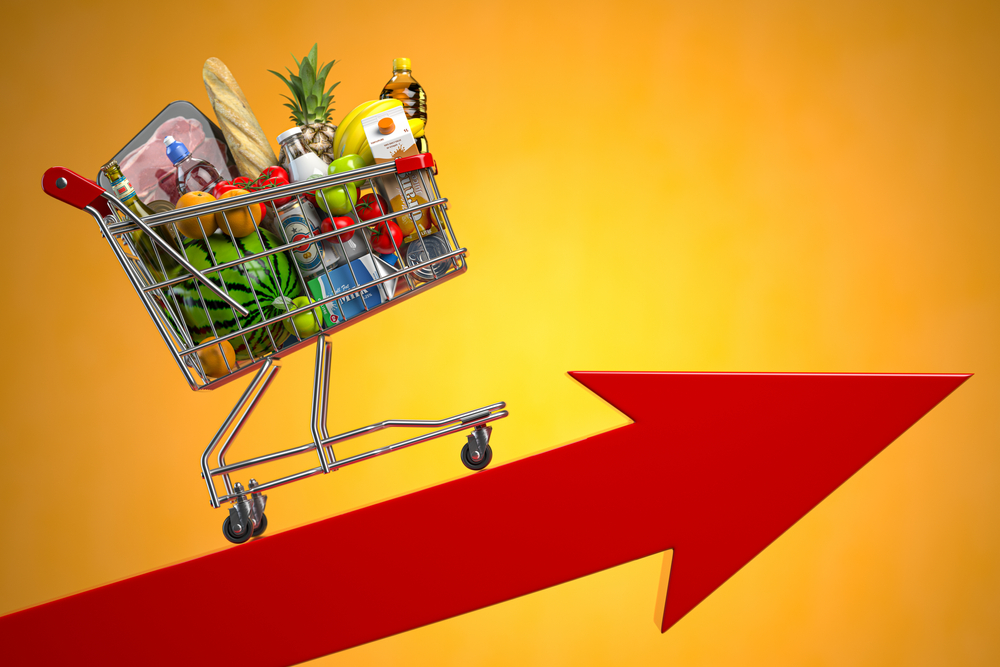Household Bills
Food and alcohol costs trigger surprise leap in inflation to 10.4%

The salad shortage and higher pub and restaurant alcohol prices contributed to the upward pressure on inflation last month.
According to the Office for National Statistics (ONS), the Consumer Prices Index (CPI) rose by 10.4% in the 12 months to February 2023, up from 10.1% in January.
On a monthly basis, CPI rose by 1.1% in February 2023, compared with a rise of 0.8% in February 2022.
Although rising, the inflation figure was below a recent peak of 11.1% in October 2022. The ONS’s indicative modelled estimates of CPI suggest that the October 2022 peak was the highest annual inflation rate since 1981.
The ONS said the largest upward contributions to the annual CPIH inflation rate in February 2023 came from housing and household services (electricity, gas, and other fuels), and food and non-alcoholic beverages. These were partially offset by downward contributions from recreational and cultural goods and services, and motor fuels.
The Consumer Prices Index including owner occupiers’ housing costs (CPIH) rose by 9.2% in the 12 months to February 2023, up from 8.8% in January but below a recent peak of 9.6% in October 2022.
Kevin Brown, savings specialist at Scottish Friendly, said: “The expectation was that price rises would drop to single digits in February before continuing to fall over the remainder of 2023. But this latest spike will cast doubt over the OBR’s prediction that inflation will reach 2.9% at the end of the year.
“The Chancellor has been equally bullish about the prospect for inflation, but this unexpected rise will dent some of that recent optimism. It also presents a cruel blow for households who may have started to think that price rises were beginning to soften.”
Nathaniel Casey, investment strategist at wealth manager Evelyn Partners, said: “Looking at the contribution components to inflation, a large part of February’s acceleration can be attributed to restaurants and hotels, with the category increasing at its fastest annual rate since 1991. Food and non-alcoholic beverages also contributed heavily with their annual rate the highest for over 45 years, vegetables were a notable mention, with a poor crop yield in Europe and Africa reducing supply.
“The main issue seems to be tightness in the labour market continuing to put pressure on wage growth. The risk is that rising wages will feed through to inflation, causing it to become entrenched. The latest data shows that underlying wage rates (ex-bonuses) have re-accelerated to 6.5% on a three-month moving average, near its highest rate since the summer of 2021.”
Will interest rates rise?
The Bank of England is due to make an announcement on interest rates tomorrow. Up until today, experts generally expected the base rate to be held at 4% – but the inflation figure causes a rate hike dilemma.
While inflation continues to remain elevated, the Bank of England has a fine line to tread between restoring price stability and limiting additional pressure on the banking sector.
Danni Hewson, head of financial analysis at AJ Bell, said: “Thinking back just a few weeks when supermarket salad aisles were suddenly empty and people were willing to pay just about anything to grab the last red pepper, it maybe shouldn’t have come as such a shock that inflation has jumped up once again.
“After three months of successive declines, the expectation had been for another slight fall in the headline rate as prices gradually trundle back towards that rather elusive 2% target. But the Government’s narrative has just suffered a plot twist and it’s a twist that couldn’t have come at a more inopportune moment.
“After two weeks of instability on financial markets there had been growing expectation that the Bank of England may take a pause in its rate hike journey, and that can’t be ruled out, but today’s upward shift will be akin to popping a rooster into the henhouse.”